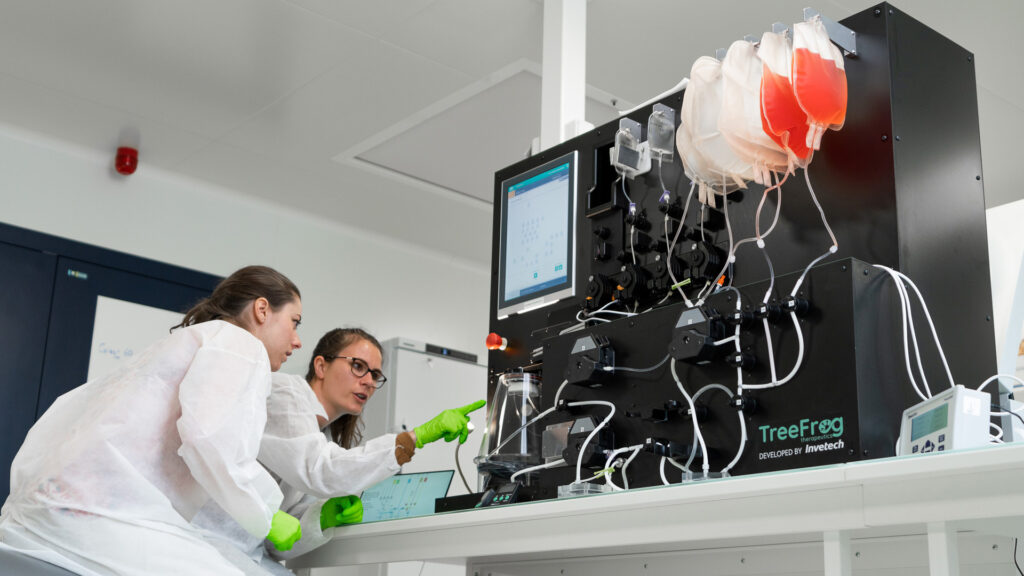Education
-
Protect Your Intellectual Property – Effective C++ String Obfuscation Strategies Explained
In today’s digital landscape, protecting intellectual property IP is crucial for software developers, especially when dealing with proprietary code and algorithms. One of the most common vulnerabilities lies in the exposure of sensitive strings within a program, such as API keys, passwords, or proprietary data. In C++, string obfuscation emerges as a potent strategy to safeguard these assets, making it significantly harder for potential attackers to decipher the underlying logic of your code. String obfuscation involves modifying string literals in a way that conceals their true meaning without altering the functionality of the program. One effective technique is to employ encoding methods, such as Base64 or hexadecimal encoding, to transform readable strings into an unreadable format. For instance, rather than storing a plain API key, you could store its Base64 encoded equivalent. While this method alone does not provide strong security, it adds a layer of complexity, requiring attackers to decode the string before they can exploit it.
Another strategy is to utilize runtime string generation. Instead of hardcoding c++ string obfuscation into your source code, you can generate them during program execution. This approach not only obscures the strings in the codebase but also makes it difficult for static analysis tools to identify sensitive data. For example, concatenating smaller string segments or using algorithms to generate strings dynamically can effectively mask the original values, ensuring they are not easily discoverable. Additionally, employing encryption techniques can provide a more robust form of obfuscation. Using symmetric encryption algorithms like AES, you can encrypt sensitive strings and only decrypt them at runtime when necessary. This method ensures that even if an attacker gains access to your compiled binaries, they will encounter only encrypted data, significantly reducing the risk of unauthorized access. However, it is essential to manage encryption keys securely; hardcoding keys into the code are a security flaw that must be avoided. Another consideration is to implement a custom string class that incorporates obfuscation techniques. By creating a wrapper around standard string types, you can control how strings are stored and manipulated.
For example, you can create methods that automatically encode and decode strings as they are set or retrieved, providing a seamless experience while maintaining a layer of protection against potential attackers. Lastly, leveraging third party libraries specifically designed for string obfuscation can also be beneficial. Many libraries offer pre-built functions that implement various obfuscation techniques, saving you the time and effort of developing your own solutions. These libraries often come with performance optimizations and are updated regularly to address emerging threats. In conclusion, protecting your intellectual property through effective string obfuscation in C++ is not just a best practice; it is an essential strategy in the battle against software piracy and reverse engineering. By employing encoding, runtime generation, encryption, custom classes, and leveraging existing libraries, developers can significantly enhance the security of their applications. While no method is foolproof, combining these strategies can create a formidable defense against unauthorized access to sensitive information.
-
Nurture Curious Minds – Preschool Tutoring Designed for Holistic Child Development
In the formative years of a child’s life, curiosity serves as the driving force behind their exploration and understanding of the world around them. Preschool tutoring, specifically designed with a focus on holistic child development, plays a crucial role in nurturing these inquisitive minds. The early years are not just about learning the basics of reading, writing, and counting; they are a time to cultivate a child’s emotional, social, physical, and cognitive growth. This comprehensive approach to education ensures that children develop into well-rounded individuals, equipped with the skills and confidence they need to succeed in life. Holistic child development recognizes that learning is a multi-faceted process. A child’s cognitive abilities, emotional well-being, social skills, and physical health are all interconnected, and each aspect influences the others. In a preschool setting, tutoring that embraces this philosophy encourages a balanced growth pattern. For example, while teaching a child to recognize letters and numbers is essential, it is equally important to help them understand and express their emotions, interact positively with peers, and develop motor skills. Such an approach ensures that no single aspect of development is neglected, promoting a harmonious growth trajectory.

Incorporating play-based learning is a cornerstone of holistic preschool tutoring. Children learn best when they are engaged and enjoying the process, and play provides a natural avenue for exploration and discovery. Whether through imaginative play, outdoor activities, or interactive games, play-based learning allows children to absorb new concepts in a way that feels organic and fun. It also fosters creativity and problem-solving skills, as children are encouraged to think independently and make decisions within a supportive environment. Tutors skilled in this approach understand the importance of balancing structured learning with unstructured play, ensuring that children have the freedom to explore their interests while still acquiring essential knowledge. Emotional and social development is another key focus of holistic preschool tutoring. At this stage, children are beginning to form their first friendships and learn how to navigate social interactions. Tutors play a vital role in guiding children through this process, teaching them how to communicate effectively, share, and resolve conflicts.
Emotional intelligence, which includes the ability to understand and manage one’s emotions, is nurtured through activities that promote empathy, self-awareness, and resilience. By creating a safe and supportive environment, tutors help children develop the confidence and social skills they need to build positive relationships throughout their lives. Physical development is equally important in the early years, as it lays the foundation for a child’s overall health and well-being. Holistic preschool tutoring incorporates activities that promote fine and gross motor skills, from simple tasks like holding a pencil correctly to more complex movements such as running, jumping, and balancing. Physical activity is not only crucial for a child’s physical health but also supports cognitive development by improving concentration and memory and visits the website https://thekidfixer.com/des-moines/preschool-kindergarten-tutoring/. A well-rounded preschool program ensures that children have ample opportunities for physical play, helping them to develop strong bodies and minds. Finally, cognitive development is a central component of preschool tutoring, but within a holistic framework, it is approached in a way that integrates all aspects of a child’s growth.
-
Building a Better Future with DUI Counseling Programs
Driving under the Influence DUI is a serious offense that not only endangers the lives of drivers but also poses a significant threat to public safety. Addressing DUI offenses through punitive measures alone has proven insufficient in curbing recidivism and ensuring long-term behavioral change. Consequently, DUI counseling programs have emerged as a critical component in the comprehensive approach to dealing with DUI offenses. These programs offer offenders a pathway to rehabilitation, education, and a better future. DUI counseling programs are designed to address the root causes of impaired driving. They focus on behavioral therapy, substance abuse treatment, and education to help offenders understand the dangers of their actions and develop healthier coping mechanisms. By participating in these programs, offenders can gain insights into the triggers and consequences of their behavior, learn strategies to avoid future offenses, and receive support in overcoming addiction issues that may contribute to their impaired driving.
One of the primary benefits of DUI counseling programs is their emphasis on education. Offenders are often required to attend classes that cover the legal, social, and personal consequences of DUI. These classes provide valuable information on the effects of alcohol and drugs on the body, the dangers of impaired driving, and the legal ramifications of DUI offenses. Education fosters a deeper understanding of the risks involved and helps offenders make informed decisions in the future. In addition to education, DUI counseling programs offer therapeutic interventions aimed at addressing underlying issues such as substance abuse, mental health disorders, and behavioral problems. Cognitive-behavioral therapy CBT is commonly used in these programs to help offenders recognize and change negative thought patterns and behaviors. Through individual and group therapy sessions, offenders can explore the root causes of their behavior, develop new coping strategies, and build a support network of peers who share similar experiences.
Substance abuse treatment is another critical component of DUI counseling programs. Many offenders struggle with alcohol or drug addiction, which significantly contributes to their impaired driving behavior. These programs provide access to addiction treatment services, including detoxification, outpatient counseling, and support groups like Alcoholics Anonymous AA or Narcotics Anonymous NA. Addressing addiction is essential for reducing the likelihood of reoffending and promoting long-term recovery. The holistic approach of Jackson Bibby DMV approved DUI class in Victorville DUI counseling programs extends beyond the individual to benefit society as a whole. By reducing recidivism rates, these programs contribute to safer roads and communities. Offenders who complete counseling programs are less likely to commit future DUI offenses, which decreases the overall incidence of impaired driving and associated accidents. This not only saves lives but also reduces the financial burden on the legal and healthcare systems. Furthermore, DUI counseling programs emphasize accountability and personal responsibility. Offenders are often required to complete community service, attend regular counseling sessions, and participate in follow-up evaluations. This structured approach encourages offenders to take ownership of their actions and make amends for their behavior.
-
Beyond the Classroom – How Driving Schools Are Adapting to Online Learning
As the digital age continues to reshape traditional learning paradigms, driving schools are not immune to the transformative power of online education. Historically confined to the confines of classrooms and behind-the-wheel instruction, driving schools have increasingly embraced online learning platforms to supplement their curriculum and enhance the overall learning experience for students. This shift towards virtual instruction has been catalyzed by various factors, including advancements in technology, the need for flexibility in scheduling, and the ongoing COVID-19 pandemic, which has necessitated remote learning solutions across all educational sectors. One of the primary ways driving schools are adapting to online learning is through the development of interactive digital courses. These courses leverage multimedia elements such as videos, animations, simulations, and quizzes to engage students and reinforce key concepts related to road safety, traffic laws, and defensive driving techniques. By incorporating these dynamic teaching tools into their curriculum, driving schools can provide a more immersive and effective learning experience that appeals to the digital-native generation. Moreover, online platforms enable driving schools to offer greater flexibility in scheduling and accessibility.

This flexibility is particularly beneficial for working professionals, students, and individuals with other commitments who may struggle to attend traditional in-person classes. Additionally, online learning eliminates geographical barriers, allowing driving schools to reach a wider audience beyond their local communities. Another key adaptation in the realm of online driving education is the integration of virtual driving simulators. These advanced simulations replicate real-world driving scenarios in a safe and controlled environment, allowing students to practice essential skills such as steering, braking, and hazard awareness. Virtual simulators offer several advantages, including the ability to repeat challenging scenarios, personalized feedback, and the simulation of adverse weather conditions or emergency situations. By incorporating virtual simulators into their curriculum, driving schools can enhance the quality of practical training while reducing the reliance on physical vehicles and instructors. Furthermore, driving schools are leveraging online platforms to streamline administrative tasks and improve communication with students. Online registration systems, payment portals, and scheduling tools simplify the enrollment process and enhance the overall efficiency of operations.
Additionally, digital communication channels such as email, chat, and video conferencing enable driving instructors to provide personalized guidance and support to students remotely. DriverZ SPIDER Driving Schools – Dallas communication tools facilitate ongoing feedback, progress tracking, and clarification of doubts, fostering a collaborative learning environment between instructors and learners. Despite the numerous benefits of online learning in the realm of driving education, there are challenges that must be addressed. One such challenge is ensuring the quality and consistency of instruction across online courses, particularly in practical driving skills that require hands-on experience. Driving schools must implement rigorous training protocols for instructors delivering online instruction and continuously evaluate the effectiveness of their virtual curriculum through student feedback and performance metrics. By integrating interactive digital courses, virtual simulators, and streamlined communication tools, driving schools can provide a comprehensive learning experience that prepares students for the challenges of the road ahead. As technology continues to evolve, driving schools must remain agile and adaptive in their approach to online learning to meet the changing needs of students in the digital age.
-
Empowering Schools for Health – School-Based Medicaid Programs Impact
School-based Medicaid programs play a crucial role in empowering schools for health by providing essential resources and services to students. These programs have a significant impact on improving access to healthcare, addressing health disparities, promoting parental engagement, and supporting overall student well-being. One of the key impacts of school-based Medicaid programs is improving access to healthcare for students. Many families face barriers to accessing healthcare due to financial constraints or lack of insurance coverage. School-based Medicaid programs bridge this gap by offering comprehensive healthcare services within the school setting. This includes regular check-ups, vaccinations, dental care, vision screenings, and mental health services. By bringing healthcare services directly to students at school, these programs ensure that all students have access to essential healthcare regardless of their family’s financial situation. Moreover, school-based Medicaid programs play a vital role in addressing health disparities among students. Additionally, these programs promote parental engagement in children’s health and education.

Students from low-income families or marginalized communities often face higher rates of health issues due to various factors such as limited access to healthcare, inadequate nutrition, and environmental stressors. Healthy School Food Collaborative school based Medicaid program helps to level the playing field by providing equal access to healthcare services for all students, regardless of their background. By addressing health disparities early on, school-based Medicaid programs contribute to improving overall health outcomes and reducing long-term health inequalities. Parents are actively involved in the enrollment process and are informed about the healthcare services available to their children through the program. This engagement fosters a collaborative approach between parents, school staff, and healthcare providers, ensuring that students receive comprehensive care that aligns with their needs and preferences. Parental involvement also extends to health education initiatives, where parents are encouraged to participate in workshops or seminars on topics such as nutrition, mental health awareness, and preventive care. School-based Medicaid programs are not just about providing medical services they are about creating pathways to healthier futures for students and families.
These programs contribute significantly to creating a more inclusive, supportive, and equitable learning environment where all students can thrive academically and emotionally. Furthermore, school-based Medicaid programs contribute to supporting overall student well-being by addressing not just physical health but also mental health needs. Mental health services provided through these programs include counseling, therapy, and access to psychiatric evaluations. By integrating mental health services into the school environment, students can receive timely support and interventions for mental health concerns, leading to improved academic performance, social-emotional development, and overall well-being. School-based Medicaid programs have a profound impact on empowering schools for health by improving access to healthcare, addressing health disparities, promoting parental engagement, and supporting student well-being. These programs play a vital role in creating a healthier and more equitable learning environment for all students, ensuring that they have the resources and support they need to thrive academically, socially, and emotionally.
-
Proteins, Pathways, and Precision Medicine – Biochemistry Research Program Unveiled
In an era marked by remarkable advances in the life sciences, biochemistry continues to be at the forefront of scientific inquiry. The unveiling of a cutting-edge Biochemistry Research Program promises to propel our understanding of proteins, pathways, and precision medicine to unprecedented heights. This multidisciplinary initiative, which combines the fields of biochemistry, genomics, and medicine, aims to revolutionize the way we approach healthcare by dissecting the molecular intricacies of diseases and personalizing treatment strategies.
The Role of Proteins – Proteins are the workhorses of life, involved in a wide range of biological processes. They serve as enzymes, transporters, structural components, and signaling molecules, among other functions. The Biochemistry Research Program will delve deep into the world of proteins, with a particular focus on understanding their structures, functions, and interactions. One of the program’s primary objectives is to elucidate the three-dimensional structures of key proteins implicated in various diseases. This knowledge is pivotal in drug design and the development of targeted therapies. By studying the atomic-level details of these proteins, researchers can identify potential drug-binding sites and design molecules to modulate their activities, opening the door to novel treatments for a wide array of illnesses and click here.

Pathway Analysis – A significant aspect of the program revolves around the study of biochemical pathways. These intricate networks of reactions govern essential processes in living organisms. By mapping and analyzing these pathways, researchers can identify potential points of intervention and gain a comprehensive understanding of the molecular mechanisms underlying diseases. In the realm of precision medicine, the Biochemistry Research Program seeks to identify disease-specific pathways. For instance, in cancer, researchers aim to pinpoint the unique biochemical pathways that drive tumor growth. This knowledge can then be used to develop targeted therapies tailored to individual patients, thereby minimizing side effects and maximizing treatment efficacy.
Genomics and Personalized Medicine – Advancements in genomics have ushered in an era of personalized medicine, where treatment decisions are tailored to an individual’s genetic makeup. The Biochemistry Research Program capitalizes on this revolution by integrating genomics data into its research endeavors. By sequencing and analyzing the genomes of patients, researchers can identify genetic variations that predispose individuals to certain diseases or affect their response to specific treatments. This information is invaluable in crafting personalized medicine strategies. For instance, a patient with a particular genetic mutation may benefit from a medication designed to target the underlying molecular defect.
Collaboration and Data Integration – The success of the Biochemistry Research Program hinges on collaboration across multiple disciplines. Biochemists, geneticists, clinicians, and computational biologists will work together to generate and interpret a vast amount of data. Cutting-edge technologies, such as next-generation sequencing and high-throughput proteomics, will be employed to collect data on an unprecedented scale. Furthermore, the program places a strong emphasis on data integration and analysis. Advanced bioinformatics tools will be used to sift through the mountains of genetic and proteomic data, allowing researchers to identify meaningful patterns and associations. These insights will form the foundation for the development of innovative diagnostic tests and treatment strategies. The Biochemistry Research Program, with its focus on proteins, pathways, and precision medicine, represents a significant leap forward in the quest to unravel the mysteries of life and disease.
-
Empowering Minds at Triumph High School El Paso East
Triumph High School El Paso East is more than just a place of education; it is a beacon of hope, a catalyst for change, and a platform for empowerment. Nestled in the heart of El Paso East, this institution stands as a testament to the power of education in transforming lives, uplifting communities, and empowering minds. In a world marked by constant change and challenges, Triumph High School El Paso East has emerged as a sanctuary for students seeking a second chance, a fresh start, and a brighter future. Many of the students who walk through its doors have faced obstacles and setbacks that could have easily derailed their educational journey. However, Triumph High School does not see their past; it sees their potential. Empowerment begins with a supportive and inclusive environment, and Triumph High School El Paso East excels in creating just that. The school’s dedicated staff understands that every student is unique, with their own strengths, struggles, and aspirations. With this in mind, they provide personalized guidance and mentorship to ensure that each student can thrive academically and personally.

One of the hallmarks of Triumph El Paso East High School is its commitment to fostering a growth mindset. Here, students are encouraged to embrace challenges and view failures as opportunities for learning and growth. This mindset shift not only boosts academic performance but also equips students with the resilience and determination needed to overcome obstacles in life. Empowering minds extends beyond the classroom, and Triumph High School El Paso East recognizes this. It offers a range of extracurricular activities and programs that allow students to explore their interests, develop leadership skills, and give back to their community. From sports teams to community service initiatives, these opportunities enable students to discover their passions and make a positive impact. In addition to its academic and extracurricular offerings, Triumph High School El Paso East places a strong emphasis on character education. Students are encouraged to develop qualities such as empathy, integrity, and perseverance. These values not only contribute to their personal growth but also prepare them to be responsible and compassionate citizens in an increasingly interconnected world.
Empowerment also means providing the tools and resources necessary for success. Triumph High School El Paso East ensures that students have access to state-of-the-art facilities, technology, and educational materials. Moreover, it partners with local organizations and businesses to create internship and job-shadowing opportunities, giving students a taste of real-world experiences. Triumph High School El Paso East understands that empowerment is not a one-size-fits-all concept. It recognizes the importance of catering to diverse learning styles and needs. Through differentiated instruction and individualized support, the school ensures that every student can reach their full potential. In conclusion, Triumph High School El Paso East is more than an educational institution; it is a sanctuary of empowerment. It empowers minds by creating a nurturing and inclusive environment, fostering a growth mindset, offering diverse opportunities, instilling values, and providing the tools needed for success. As Triumph High School continues to shape the future of its students and community, it serves as a shining example of the transformative power of education. In the heart of El Paso East, it is not just about schooling; it is about empowering minds and changing lives.
